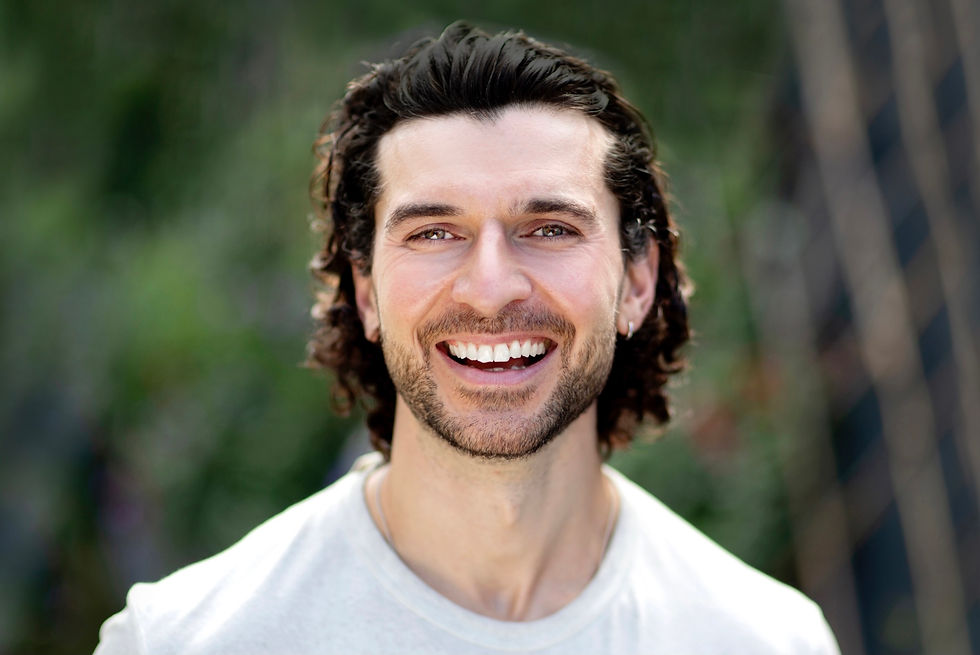HOW TO HANDLE CHEATING ANXIETY, ACCORDING TO A RELATIONSHIP EXPERT
- Melissa Fleur Afshar

- Mar 11, 2025
- 3 min read
Newsweek Exclusive Feature
Dr. Aria Campbell-Danesh says that people need to give their romantic partners the "the opportunity" to earn their trust.
If you are worried your partner might cheat, you may feel inclined to start checking their phone or keeping close tabs on their whereabouts.
That is what Dr. Aria Campbell-Danesh, one of the United Kingdom's leading high-performance psychologists, has seen in his years of experience working with relationships. However, the clinical psychologist said that this is exactly the behavioral pattern that you should steer clear of if anxious about a potential, looming betrayal.
Campbell-Danesh, who is known as @dr._aria online, has warned against getting worked up about "what ifs" in relationships, arguing that this can lead to increased feelings of anxiety and less resilience.
"When people fear betrayal, they often respond with hypervigilance, by checking phones, installing tracking locations, and questioning their partner's every move," Campbell-Danesh told Newsweek. "However, research shows that excessive suspicion can create emotional distance, erode intimacy, ultimately become a self-fulfilling prophecy."
While the psychologist's opinion on hypervigilance pushing romantic partners away could raise a few eyebrows, he clarified that he is not placing blame on those who have been cheated on or arguing that they brought this betrayal on themselves.
Cheating is relatively common. The United States tops the league table of countries with the most cheaters, with 21 percent of respondents admitting to having cheated on any past or present partner, according to 2021 findings by Statista. This was an increase from the previous year and a sharp increase from 14 percent in 2015.
To Campbell-Danesh, a little forward thinking about your relationship is OK. However, controlling tendencies could be indicative of deep-seated abandonment fears that need to be addressed to pave the way for calmer responses to life's ups and downs.

"The hard truth is that if someone is going to cheat, they will find a way," Campbell-Danesh, who is specialized in mindset, resilience and relationships, said. "No amount of monitoring can change that.
"Instead of exhausting yourself trying to prevent betrayal, let people reveal their character through their actions."
The clinical psychologist sparked discussion on Instagram in January after sharing his take on how people should approach fears and worries about potential relationship betrayals. Campbell-Danesh filmed himself responding to a viral video posted by @nikkippatel, which encouraged viewers to "let their [partners] cheat on them."
"Trying to control someone won't prevent cheating," he told his followers. "It will only exhaust you."
Instead, Campbell-Danesh, who published his first book in 2019, advised viewers to let their partners' actions reveal their true character and observe and assess whether their behavior aligns with them without jumping to conclusions.
He said that by focusing only on what they can control themselves, they can experience reduced levels of anxiety around their relationship if they feel particularly triggered by abandonment.
To accomplish this, he recommended shifting one's focus from what is going on around one to what one is thinking and communicating to the world through one's words and boundaries.
He added that whichever way people choose to converse should be as reflective of their values as they wish for their significant other to show them whether they are loyal and reliable.
While this can ease a person's anxiety, it can also allow their partner to prove how trustworthy they are, which can instill feelings of clarity, self-worth and confidence in the anxious individual.
"Trust is a choice, but it is also earned, and clarity is power," the psychologist, who has worked with athletes and Academy Award-winning creatives, said. "Trust is not a blind leap—it is built through earned consistency.
"Relationship research shows that trust grows in the small, everyday moments of reliability, and if a partner's actions align with honesty, integrity, and commitment, trust naturally strengthens," he said.
Psychological research supports this, as people who direct their energy toward their own actions and responses rather than trying to control others experience less anxiety and greater resilience overall.
"The message behind the video reflects a simple but powerful Stoic principle: peace comes from focusing on what we can control and letting go of what we cannot," Campbell-Danesh said. "And you have to give your significant other the opportunity to earn your trust."
THANK YOU FOR READING
COVER IMAGE CREDIT: GETTY IMAGES
READ THE FULL STORY HERE: https://www.newsweek.com/cheating-control-relationship-psychologist-responds-2042209
Comments